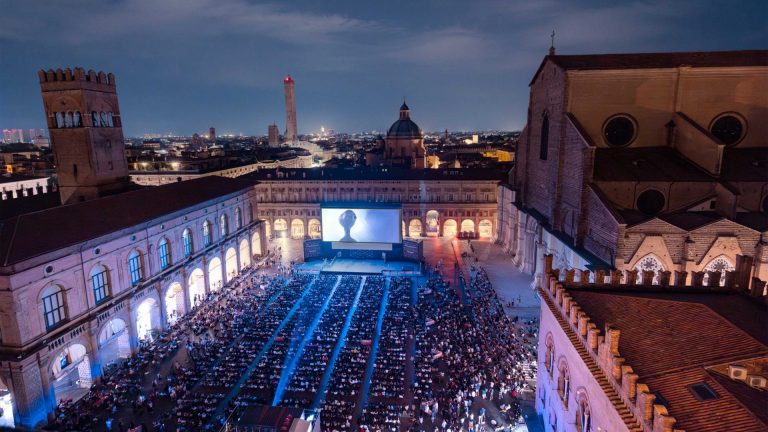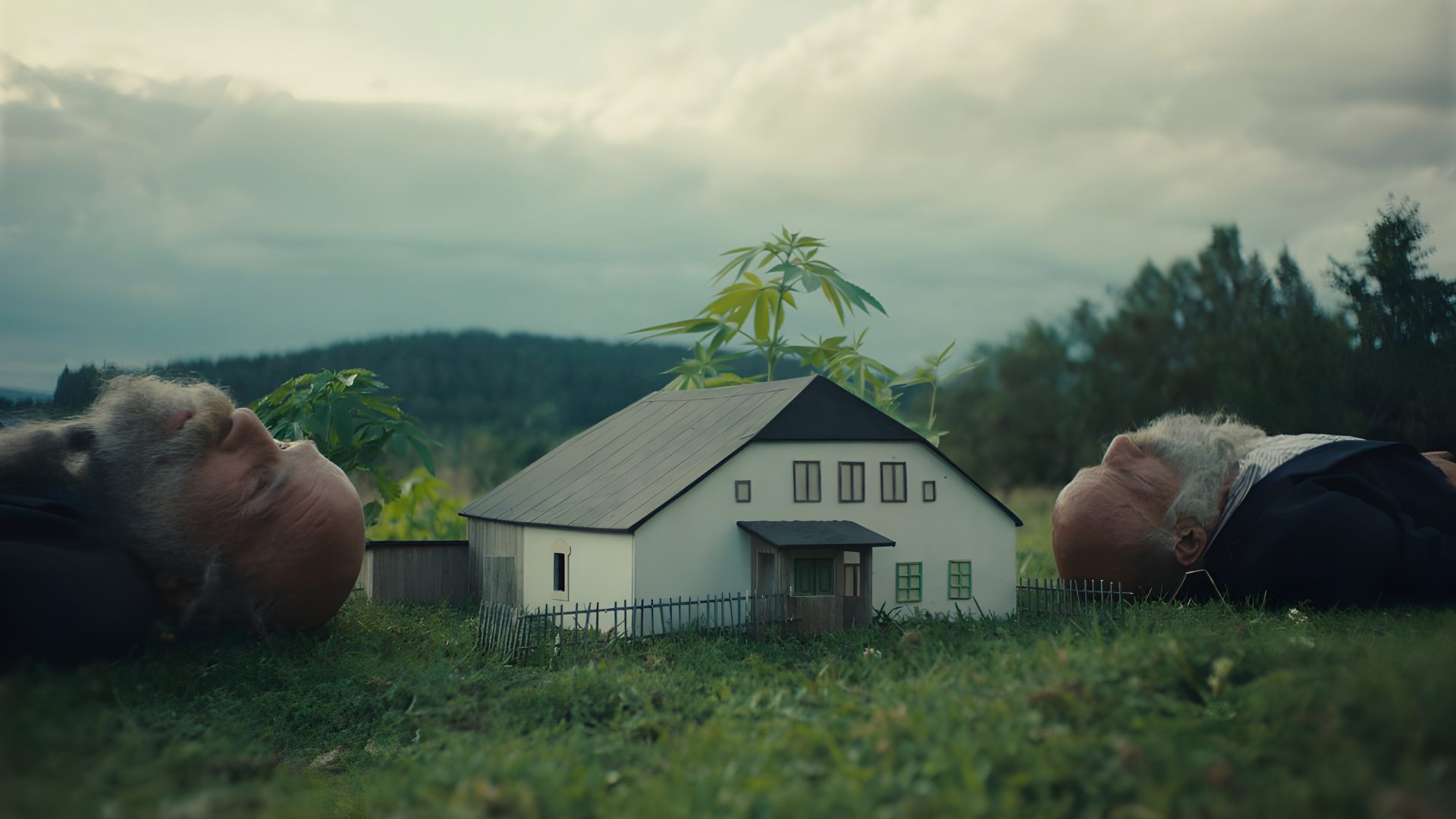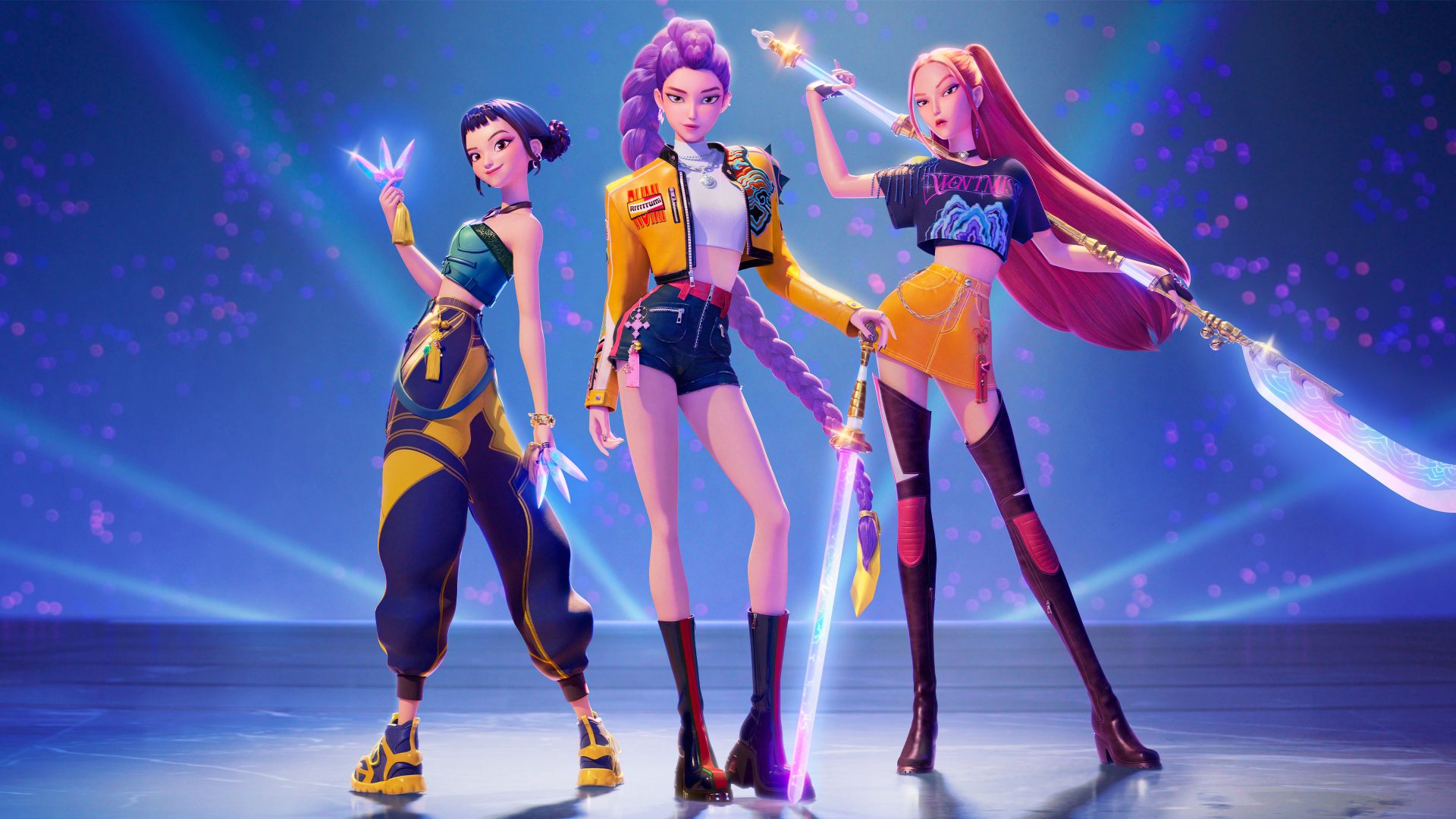About an hour and a half from Prague, the spa town of Karlovy Vary hosts the Czech Republic’s largest film festival. It’s an A-list affair that attracts Hollywood stars like Dakota Johnson, Michael Douglas and Stellan Skarsgård and presents a programme that blends eastern and central European cinema with the rest of the world.
The town itself has its movie connections, having served as one of the inspirations for The Grand Budapest Hotel, Wes Anderson’s love letter to Mitteleuropa. The Grandhotel Pupp was also used as the eponymous casino where Daniel Craig’s James Bond went face to face with Mads Mikkelsen in Casino Royale.
This year the deserving winner of the top prize – the Crystal Globe – was the Slovak-Czech hybrid documentary Better Go Mad in the Wild. Miro Remo’s film is a portrait of a pair of eccentric twins, František and Ondřej Klišík, who would be identical were it not for the fact that one had lost an arm in a work accident.
Descendants of the Romanian Slovaks who settled in the Šumava region after the second world war, the two spend their days drinking, smoking, arm wrestling, farming, trying to fly and not so much reciting poetry as being poetry. You can see how Franta lost his arm below the elbow with nary a health and safety regulation in sight. When not jumping off roofs with Icarus-like wings strapped to their arms, they’re trying to ride bulls as if they were horses.
Inspired by a book by Aleš Palán of the same name, the film features talking cows, some beautiful visuals and moments of remarkable insight: “There’s a lot of boring cunts,” one of the brothers states. “Vladimir Putin is the boring cunt, par excellence.” Preach.
In a tragic but entirely predictable piece of news, Franta drowned in a pond literally hours after the film won the top prize at Karlovy Vary: the very definition of shocking but not surprising.
Another Czech film which proved a highlight of the festival was Broken Voices, a film about an all too familiar subject which nevertheless manages to approach it with delicacy and nuance. Based on a real-life child abuse scandal, the film follows a pair of sisters, Karolina (Kateřina Falbrová) and Lucie (Maya Kintera), who are both members of an elite choir. Karolina is hoping to join her sister in the A team and so qualify for a tour to the United States.
Suggested Reading


The best film festival in Italy and no, it’s not Venice
Vitek (Juraj Loj) is the musical director with a Rasputin glare and rock’n’roll locks, who uses the power of his position to play the vulnerable young girls against each other, until his eventual abuse will take on the glow of adoration. His behaviour is facilitated by parents and a society – the film is set in the early 1990s as the Czech Republic emerges from the abusive relationship of Soviet dominance – that have groomed themselves into unquestioning acquiescence.
Norwegian film Don’t Call Me Mama looks at age disparity from another angle. Pia Tjelta, who picked up the best actress award, plays Eva, a teacher committed to welcoming refugees in her small community. This becomes more complicated, however, when she falls for a teenage refugee called Amir (Tarek Zayat). It should be noted that Nina Knag’s debut film is more a Douglas Sirk-like affair than the story of abuse of Broken Voices. That said, Tjelta’s performance is one of subtlety and darkness, and the film takes twists that will leave the audience questioning their assumptions.
Exploring themes of alienation in a surprisingly upbeat way, the Lithuanian-Norwegian-Swedish coproduction of Vytautas Katkus’s feature debut The Visitor makes for an appealing oddity.
The story is more a situation than a narrative. Danielius (Darius Šilėnas) is a Lithuanian now settled in Norway, who returns home to sell his parents’ flat after they have died. Summer is on the wane, and Danielius dawdles, perhaps to catch up on some sleep: he has a baby back home and an intrusive mother-in-law.
In this hangiest of hang-out movies, Danielius is welcomed by friends but they all have ongoing lives that he’s only dipping into. In Norway, he talks with his partner in English, and this film also feels like it’s arriving at some mutually agreed-upon second language, somewhere between the absurd and the banal, the comic and the sad. The Visitor feels post-existential. We don’t really belong anywhere, but so what? C’est la vie.
There have been many documentaries from Ukraine since the beginning of the war, and there’s always the worry that they are being created as propaganda and received with less detachment than most films. However, Divia by Dmytro Hreshko is a genuinely original take – the film explores the relationship between war and the environment.
The destruction of the flora and fauna of Ukraine is both heartbreaking and strangely beautiful. There are many drone shots here, but no narration and no dialogue. There are echoes of Godfrey Reggio’s 1982 film Koyaanisqatsi, but the film is genuinely unique and pressing.
Watching Divia I came away with the radical notion that perhaps we should make a concerted effort not to make weapons. The military is currently responsible for 5.5% of the global carbon footprint, which doesn’t take into account the pollution and destruction of ecosystems caused during conflicts. That’s just its resting bitch face.
John Bleasdale is the author of Darkness Visible: The Cinema of Jonathan Glazer (Sticking Place Books), out now




